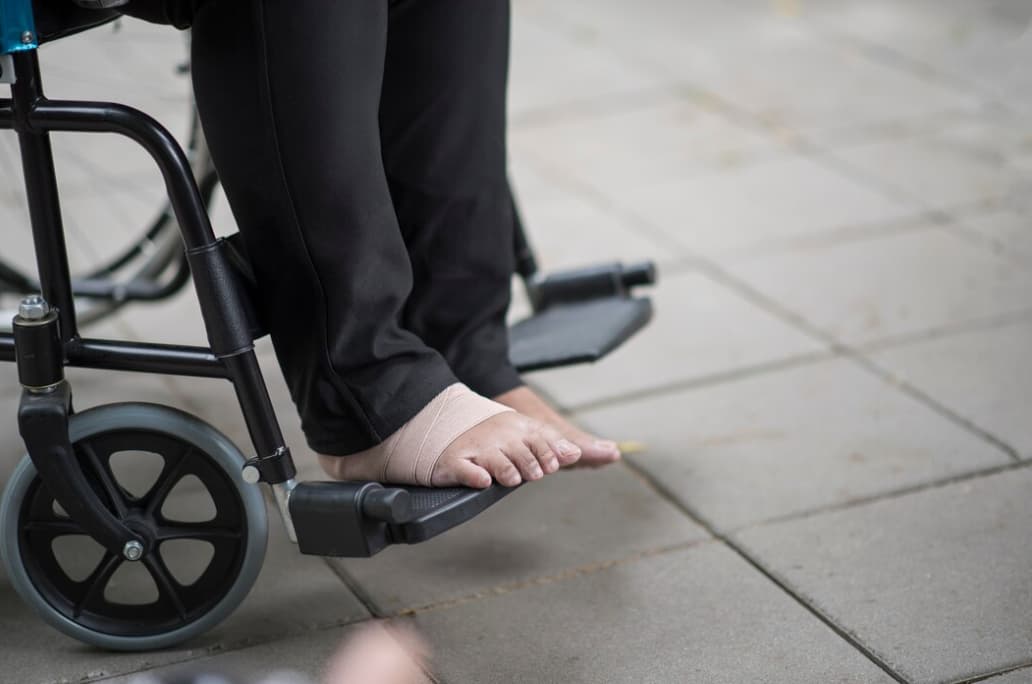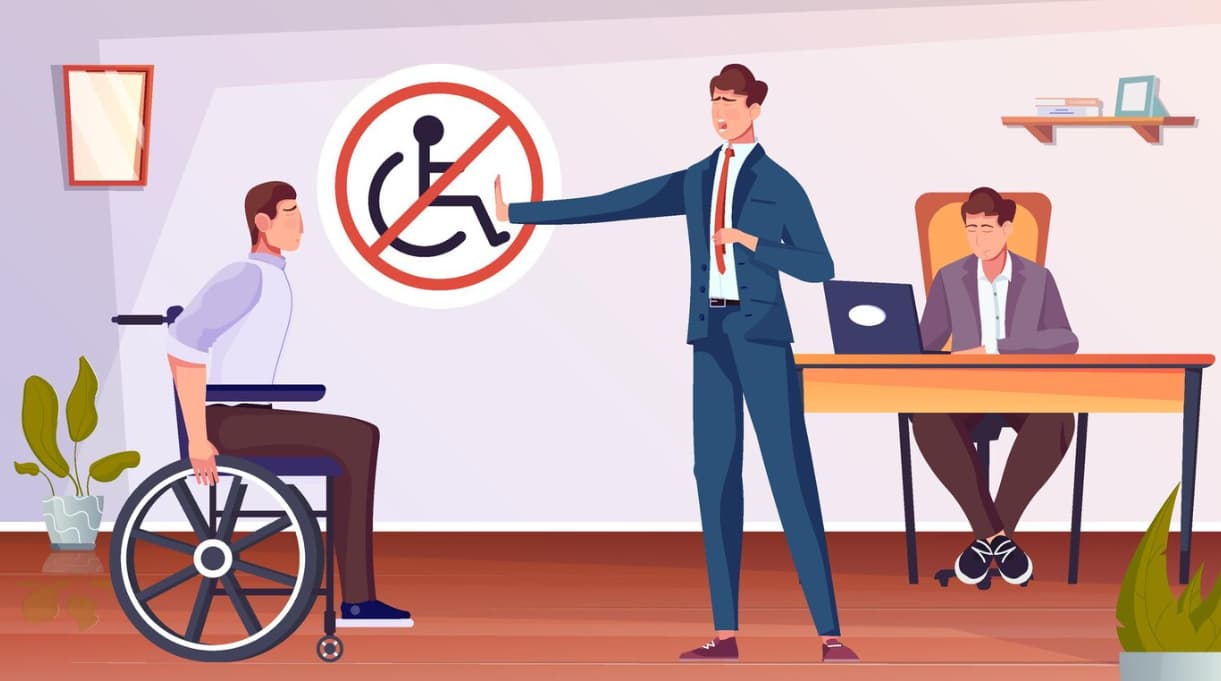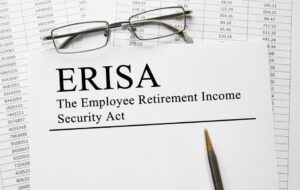Introduction to Long-term Disability Insurance Denials
In cases where a severe injury or sickness occurs, long-term disability coverage is intended to offer necessary financial assistance. Unfortunately, there are instances where these claims are unfairly denied by insurance providers. Particularly, if you’ve submitted a claim for long-term disability insurance with companies like Guardian or Berkshire Life, you might be perplexed about the reasons behind the rejection of your claim.
Understanding ERISA is crucial for your disability attorney to effectively navigate the complexities of a Guardian/Berkshire disability denial.
When your policy is linked to a group plan sponsored by your employer, it’s often governed by the Employee Retirement Income Security Act, or ERISA. This legislation includes various clauses that tend to favor insurance firms. As a result, in the event of a claim denial, it’s advisable to consult an experienced lawyer who specializes in ERISA long-term disability appeals and litigation. These cases are subject to strict deadlines and specific procedural and legal requirements. Not following these can risk your appeal and the possibility of regaining your benefits.
In-depth Look at Guardian or Berkshire Life Disability Insurance
- Guardian and its subsidiary Berkshire Life Insurance Company of America are leading providers of disability insurance in the United States, offering both individual disability income policies and group policies regulated by ERISA;
- Their market positioning is as a high-end insurer, offering relatively expensive insurance policies targeting well-remunerated professionals, such as executives, doctors, and lawyers.
Numerous long-term disability insurance options are available, all designed to provide coverage if illness or injury prevents you from carrying out your “occupation,” a term with various interpretations according to the context.
A noticeable rise in Guardian/Berkshire disability claim denials and benefit terminations began in early 2020. Guardian, previously more generous in giving claimants the benefit of the doubt, appears to be changing its approach, particularly with claims for high-earning professionals like doctors, lawyers, and dentists.
Often, adverse claim decisions are based solely on the review of medical records by a remote medical specialist who has never met the patient. A group of medical consultants frequently scrutinizes patient data for disability insurers, often challenging the patient’s attending physicians.
Before accepting responsibility for new claims, Guardian/Berkshire conducts a thorough review of them. The claims process is intentionally complex and can become overly frustrating, leading to many claimants being denied the benefits they deserve.
Causes for Guardian/Berkshire LTD Denials

Various factors could be behind the denial of your long-term disability claim. These may encompass:
Medical Consultant Disputes Your Disability Status
- Guardian/Berkshire commonly employs physicians for medical reviews, often using third-party contractors specializing exclusively in the disability insurance sector. This hiring practice raises concerns about the objectivity of their opinions and their access to comprehensive pertinent information;
- At times, regularly used consulting physicians make rulings about illnesses outside their field of expertise—often selecting specific medical records to review, highlighting issues with a part of a patient’s record, while disregarding the parts supporting the disability claim. Without meeting you, the insurance consultants cannot fully understand how your condition impacts your life and work capacity.
Disagreeing Over the Demands of Your Job
- Most Guardian or Berkshire policies are “own occupation” although not for the entire claim period. Typically after the initial 24-month period, the policy definition changes from your own occupation to “any occupation”. For instance, if you were an engineer, the insurance company might argue that you can now perform any job, not just engineering, which would reduce the long-term benefits you receive;
- To counter this, Guardian offers even higher and costlier coverage plans for physicians, dentists, and lawyers to practice in their “own specialty”. These plans aim to pay out if you’re unable to work within your chosen specialty, even if you could perform alternative, less physically challenging tasks within your profession. However, Guardian or Berkshire Life may still contest that your job is not as demanding, or you didn’t practice within your specialty, and deny your claim.
“Own Occupation/Any Occupation” Claims
- While most individual policies define “disability” as the inability to perform your customary occupation or specialization, other policies, such as group coverage provided to company employees, redefine “disability” after a predetermined interval of usually 24 months of benefits have been paid;
- For instance, your policy can cease paying benefits after 24 months unless you can provide evidence you’re unable to perform any work. Guardian or Berkshire may use one of its occupational experts to identify jobs that require less mental or physical exertion, arguing you could work in those positions. This necessity underlines the importance of having our experienced long-term disability attorney advocate on your behalf.
Addressing Delays in Your Guardian or Berkshire Life Claim
When handling claims, insurance companies might cause delays by continuously asking for more information. These inquiries could be legitimate, such as needing additional medical records or information that Guardian/Berkshire has not yet obtained. Nevertheless, there are instances where Guardian/Berkshire may employ delaying strategies. This can involve sending you repeatedly between your doctor and their claims manager, leading to an apparently endless cycle of communication. To identify and counteract these tactics, and to hasten the claim process, the expertise of our skilled disability lawyer is crucial. They can subtly (or overtly) hint at possible legal action, which can compel the insurer to make a decision on the claim or reinstate it.
Navigating the Appeals Process for Long-Term Disability

If Guardian/Berkshire declines your application for long-term disability benefits, they will provide you with a compulsory notice of denial, including details for your initial appeal. Should you choose our services to oversee your appeal, we guarantee its submission within the necessary timeframe. Afterwards, the appeal documentation will be sent to the individual in charge of appeal processing.
Navigating the appeals process for long-term disability can be quite intricate, involving extensive paperwork and multiple deadlines. Despite its complexity, it’s important not to be discouraged. A key tip is to keep or obtain copies of all exchanges with Guardian/Berkshire Life. This documentation might encompass:
- Additional information provided to Guardian/Berkshire (like medical records from your treating physician supporting your long-term disability insurance claim);
- A duplicate of your appeal request;
- A copy of your insurance policy.
The Benefits of Your Guardian Berkshire Disability Insurance
Grasping your entitlements and duties within your Guardian Berkshire disability insurance plan is key to maximizing its benefits. This involves familiarizing yourself with your policy’s terms and conditions, particularly noting important deadlines and understanding the appeals procedure. Consistent and transparent interactions with your insurance company are vital. Make sure to retain all communication records with them. Keeping detailed records about your health condition or injury, such as medical reports and a diary tracking your disability, is essential for bolstering your position should you need to file a claim.
Preventing a Guardian Berkshire Disability Insurance Denial
To minimize the risk of having your claim rejected, it’s crucial to have thorough documentation of your disability, with your doctors supplying detailed and clear medical records. Fill out the claim form precisely, including all required details. Additionally, adhere to your policy’s terms, ensuring you comprehend the definition of ‘disability’ as per your policy. If feasible, keep working until your insurance provider confirms your claim. In case of a denial, seek guidance from a seasoned disability insurance lawyer who can assist you in navigating the appeals process.
Conclusion
Understanding your Guardian Berkshire disability insurance policy and the process and potential obstacles in claiming benefits can significantly improve your chances of a successful claim. By being aware of the common reasons for claim denials, you can undertake proactive measures to strengthen your claim. If your claim is denied, make sure you approach an experienced attorney specializing in disability insurance to guide and represent you. Being prepared and informed is paramount, and this comprehensive guide is designed to provide you with the necessary insights.



